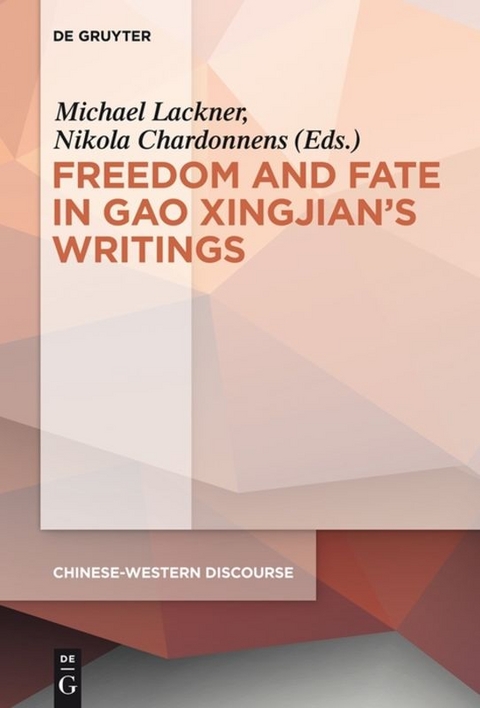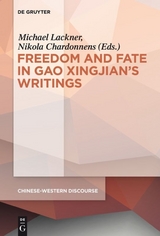Polyphony Embodied - Freedom and Fate in Gao Xingjian’s Writings
Seiten
2014
De Gruyter (Verlag)
978-3-11-034642-8 (ISBN)
De Gruyter (Verlag)
978-3-11-034642-8 (ISBN)
The ever-increasing interactions between the Chinese and the Western World result in fast-paced global transitions. The series has been created to capture these developments, presenting monographs and collections on the Chinese-Western Discourse in the humanities. It features outstanding contributions reflecting current debates in philosophy, cultural theory, literature and religion. All contributions are peer reviewed.
Like artists, important writers defy unequivocal interpretations. Gao Xingjian, winner of the Nobel Prize in literature, is a cosmopolitan writer, deeply rooted in the Chinese past while influenced by paragons of Western Modernity. The present volume is less interested in a general discussion on the multitude of aspects in Gao's works and even less in controversies concerning their aesthetic value than in obtaining a response to the crucial issues of freedom and fate from a clearly defined angle. The very nature of the answer to the question of freedom and fate within Gao Xingjian's works can be called a polyphonic one: there are affirmative as well as skeptical voices. But polyphony, as embodied by Gao, is an even more multifaceted phenomenon. Most important for our contention is the fact that Gao Xingjian's aesthetic experience embodies prose, theater, painting, and film. Taken together, they form a Gesamtkunstwerk whose diversity of voices characterizes every single one of them.
Like artists, important writers defy unequivocal interpretations. Gao Xingjian, winner of the Nobel Prize in literature, is a cosmopolitan writer, deeply rooted in the Chinese past while influenced by paragons of Western Modernity. The present volume is less interested in a general discussion on the multitude of aspects in Gao's works and even less in controversies concerning their aesthetic value than in obtaining a response to the crucial issues of freedom and fate from a clearly defined angle. The very nature of the answer to the question of freedom and fate within Gao Xingjian's works can be called a polyphonic one: there are affirmative as well as skeptical voices. But polyphony, as embodied by Gao, is an even more multifaceted phenomenon. Most important for our contention is the fact that Gao Xingjian's aesthetic experience embodies prose, theater, painting, and film. Taken together, they form a Gesamtkunstwerk whose diversity of voices characterizes every single one of them.
Michael Lackner and Nikola Chardonnens, University of Erlangen-Nuremberg, Germany.
| Erscheint lt. Verlag | 13.5.2014 |
|---|---|
| Reihe/Serie | Chinese-Western Discourse ; 1 |
| Verlagsort | Berlin/Boston |
| Sprache | englisch |
| Maße | 230 x 155 mm |
| Gewicht | 521 g |
| Themenwelt | Geisteswissenschaften ► Philosophie ► Östliche Philosophie |
| Geisteswissenschaften ► Sprach- / Literaturwissenschaft ► Literaturwissenschaft | |
| Schlagworte | China • Essay • Exile literature • Exile literature, China, Western Modernity • Exilliteratur • Freiheit • Gao Xingjian • Schicksal • western modernity • westliche Moderne |
| ISBN-10 | 3-11-034642-7 / 3110346427 |
| ISBN-13 | 978-3-11-034642-8 / 9783110346428 |
| Zustand | Neuware |
| Haben Sie eine Frage zum Produkt? |
Mehr entdecken
aus dem Bereich
aus dem Bereich




